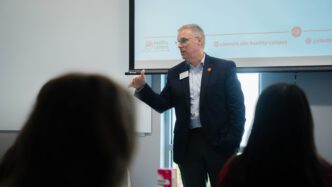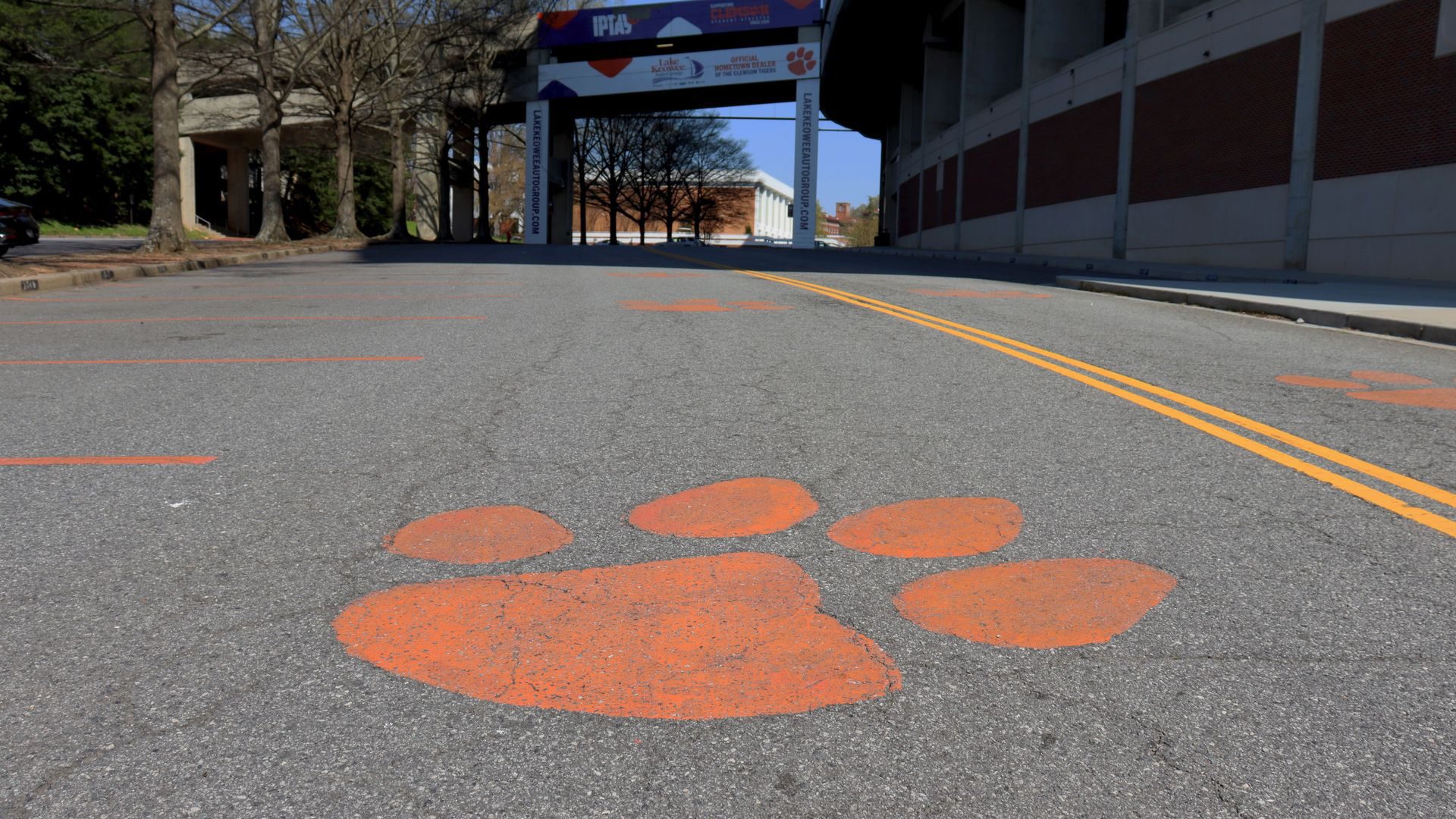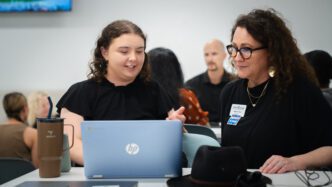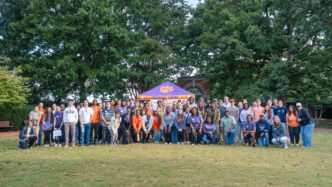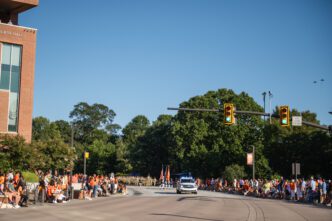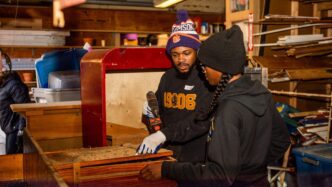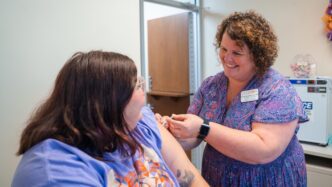Doug Hallenbeck returned to Clemson in September 2024 after five years as vice president for student affairs at Oklahoma State University. In a short period of time, he has worked tirelessly to strengthen partnerships throughout campus, refine the alignment of resources in support of Clemson Elevate and University values, and establish a comprehensive plan as vice president for the Division of Student Affairs.
You’ve been back at Clemson for a year. What has it been like?
Doug Hallenbeck: It’s been great. I’ve likened it to going away for a long weekend and coming back and changing offices. We have good momentum as an institution and division. There’s been a lot of activity and changes at the University level, but it’s been fun figuring out what the future looks like.
In the first year back, what have been some of your focuses?
DH: Evaluating the division and understanding the people involved. There are new folks from the last time I was here. Hiring the dean of students position was a big role to fill in our leadership structure. I’ve also tried to determine how we best connect to Clemson Elevate. We had a strategic plan in place, but it’s been about refining that and addressing our connectivity to the No. 1 student experience.
How valuable is Student Affairs to the overall educational experience at Clemson?
DH: One of the things the pandemic taught us is a lot of instruction can occur online. But it also taught us that students missed and needed an opportunity to come together and build community. And that’s what we provide. When you think about a student’s success at Clemson, it’s largely because of that support that happens outside of the classroom. How do we do that? It’s never been important than it is today, whether it’s navigating mental health issues, getting students engaged, learning what employers need of graduates. It’s not the technical skills they’re after; they expect that. But what they need is to answer the questions of how they interact with others, how they operate as part of a team — and we provide those opportunities.
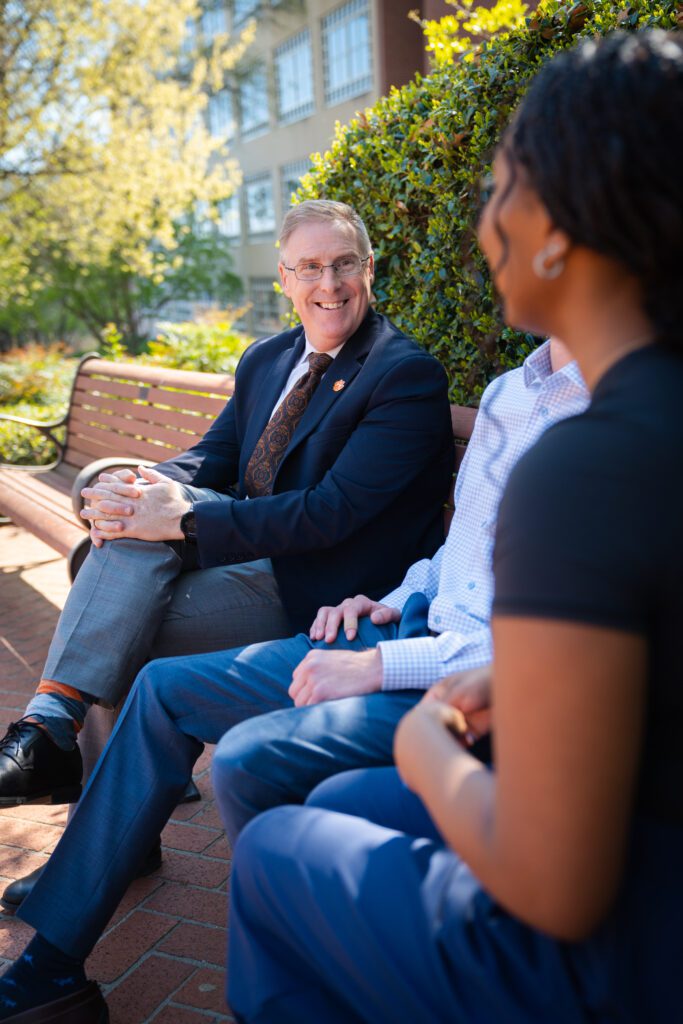
You’ve said delivering the No. 1 student experience means supporting the whole student and ensuring a strong sense of well-being — can you expand on that?
DH: If you’re not well — mentally or physically, or if you don’t feel like you belong — that experience is going to be lacking. Whether it’s through our CARE Network through the outreach done by our team in Advocacy and Success, or working with our counseling staff to address students who are in crisis and have more acute needs, or if it’s the overall environment — learning the resources through Healthy Campus and Aspire to be Well and working with our residence halls. Working on their mental fitness is one component. But it’s also eating well, sleeping better, exercising more and finding community. In thinking about that broader web of support, how do we wrap our arms around students to enable them to be successful?
We talk a lot about the development of life skills — why is that so critical at Clemson?
DH: Employers are telling us those are highly sought after. It helps students be better prepared, if they pay attention to those softer skills. It’s been trending this way since the early 2000s, so it’s not a new concept. It became more acute from the impacts of COVID. When you think about it, you had seniors in high school all the way down to kindergarten and we took them out of their development for six months to two years. When you pause that, it’s going to have an impact. Part of that is students aren’t going to know how to communicate well in teams. The digital age and artificial intelligence is so easily accessible, so critical thinking maybe hasn’t been as important. There’s a constant ability to communicate, whether it’s through text, phone calls or social media. Education has put parents right in the middle of the process. Parents know when something’s been submitted in real time, rather than a student figuring out on their own, figuring out the repercussions of missed assignments or poor grades. You might text them in real time. All of those things have led students to not be as prepared to live on their own as they were 20 years ago.
What are you looking forward to most in Year 2?
DH: Being able to take what I learned in Year 1 and how we evolve as a division. The inclusion of Auxiliary Enterprises as part of Student Affairs is a big move. I want to see how we better connect the work we’re doing to outcomes related to the Clemson Elevate plan and bring meaning to that for our students.

